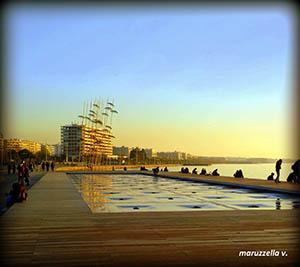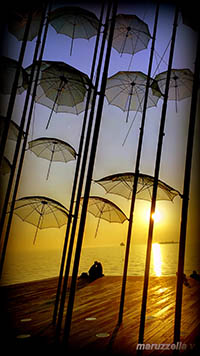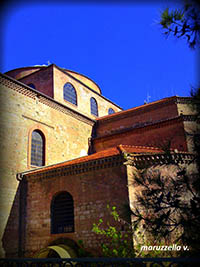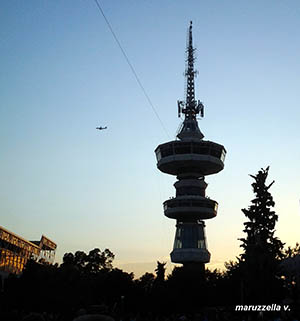Thessaloniki: A historical city with many stories
Guide for visiting the city of Thessaloniki
The Hadron Therapy Workshop will take place at the historical city of Thessaloniki, Greece. Thessaloniki, also known as Thessalonica, Salonika or Salonica, is the second-largest city in Greece and the capital of Greek Macedonia, the administrative region of Central Macedonia and the Decentralized Administration of Macedonia and Thrace. Its honorific title is literally "co-capital", and stands as a reference to its historical status "co-reigning" city of the Eastern Roman (Byzantine) Empire, alongside Constantinople.
According to the Greek National Statistical Service, the municipality of Thessaloniki had a population of 385,406 in 2007, while the Thessaloniki Urban Area (the Thessaloniki Greater Area "TGA") had a population of 800,764. Furthermore, the Thessaloniki Metropolitan Area (the prefecture of Thessaloniki) extends over an area of 1,455.62 km2 (562.02 sq mi) and its population in 2011 reached a total of 1,104,460 inhabitants.
Thessaloniki is Greece's second major economic, industrial, commercial and political centre, and a major transportation hub for the rest of southeastern Europe; its commercial port is also of great importance for Greece and the southeastern European hinterland. The city is renowned for its festivals, events and vibrant cultural life in general, and is considered to be Greece's cultural capital. Events such as the Thessaloniki International Trade Fair and the Thessaloniki International Film Festival are held annually, while the city also hosts the largest bi-annual meeting of the Greek diaspora. Thessaloniki is the 2014 European Youth Capital.
The city of Thessaloniki was founded in 315 BC by Cassander of Macedon. Thessaloniki is a popular tourist destination in Greece. For 2013, National Geographic Magazine included Thessaloniki in its top tourist destinations worldwide, while in 2014 Financial Times FDI magazine (Foreign Direct Investments) declared Thessaloniki as the best mid-sized European city of the future for human capital and lifestyle.
You could find more information about Thessaloniki here:
https://www.visitgreece.gr/mainland/macedonia/thessaloniki/
Attractions & Sightseeing
Some of Thessaloniki's top attractions include the following:
- The White Tower on the water frond. The landmark of Thessaloniki.
- The Archaeological Museum of Thessaloniki
- The Museum of Byzantine Culture
- The Roman Monuments dating back to the early 4th century a.D.
- The Ladadika district near the port, known for the 'local color' and the sophisticated entertainment options.
- Visit the numerous Byzantine Churches of Thessaloniki, dating back to the early Christian years.
- Experience local and international gastronomy in a city where cookery is a passion! Taste local wine and visit wineries and vineyards following the 'Wine Roads of Macedonia'
- Enjoy Shopping in one of the most dynamic and innovative commercial centres of Greece.




Weather & Climate
Thessaloniki enjoys a typical Mediterranean climate, with its location in northern Greece resulting in the region receiving more rain than other areas of the country, and seeing lower temperatures during the winter. Summers in Thessaloniki are generally hot and dry, and the area receives an abundance of sunshine even during the low season.
Details about the weather in Thessaloniki can be found here: Thessaloniki's weather
Time & Currency
Greece belongs to the Eastern-European time zone and it is two hours (+2) ahead of Greenwich Time.
Currency exchange rates are clearly displayed in every bank that accepts currency exchange, while credit card holders may acquire money from the ATMs of the collaborating banks. Greek banks are open for the public from 8:00 to 14:30 Mondays to Thursdays and from 8:00 to 13:30 on Fridays. They are closed on Public Holidays.
Euros can also be exchanged for notes of other foreign currencies at exchange offices that are situated at the airport and certain main ports, in the larger cities, as well as at many tourist destinations. A passport is required when exchanging currencies.

